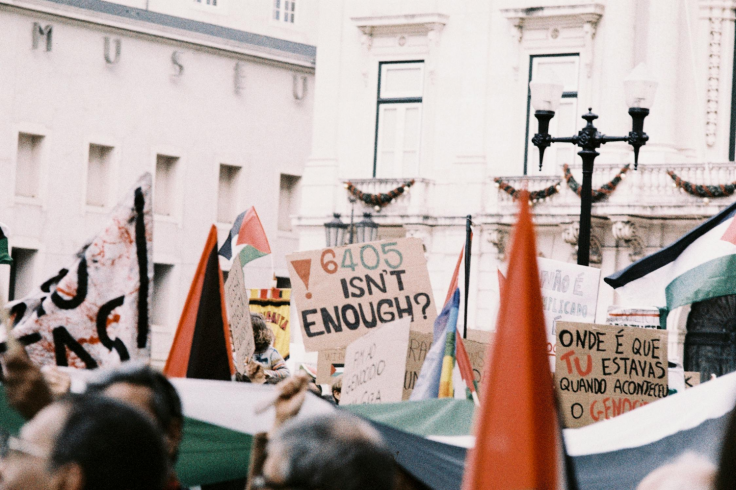University of California's Work Stoppage Escalates as Pro-Palestinian Protest Gains Momentum
ByThe University of California is currently experiencing a significant upheaval as a work stoppage, initially sparked at the University of California, Santa Cruz, has rapidly spread to encompass five campuses.
Academic workers, represented by UAW Local 4811, are participating in the strike to show solidarity with pro-Palestinian protesters. This escalation has led to disruptions in university operations and legal actions from the UC System, highlighting the complex intersection of labor rights, political activism, and legal challenges in academic settings.

Expansion of the Work Stoppage
The University of California work stoppage supporting pro-Palestinian protesters has rapidly grown to encompass five campuses. Initially starting at the University of California, Santa Cruz on May 20, the strike has expanded to include the University of California, Los Angeles, Davis, San Diego, and Santa Barbara. UAW Local 4811, the union orchestrating these walkouts, claims to represent a significant portion of the university's academic workforce, totaling over 25,000 employees.
The inclusion of San Diego and Santa Barbara on Monday marked a substantial escalation. UAW Local 4811 announced that they represent 8,000 academic employees in San Diego and another 3,000 in Santa Barbara. The workers involved in the strike include graduate student workers, postdoctoral scholars, and other academic employees who are advocating for what they see as the right side of history in supporting pro-Palestinian causes.
Joyce Chan, a postdoctoral scholar in the neurosciences department at the University of California, San Diego, expressed the union's position, urging UC to align with the right side of history. She highlighted instances where protesters advocating for peace and exercising their free speech rights had been subjected to beatings and arrests. To halt the strike's expansion, Chan emphasized the need for UC to make significant strides in addressing alleged unfair labor practices, starting with dropping all criminal and disciplinary charges against arrested peaceful protesters.
Impact on University Operations
The work stoppage has significantly disrupted university operations across the affected campuses. With the potential for more campuses like Irvine to join the strike, the University of California system faces considerable challenges. A spokesperson for the UC System highlighted the extensive disruptions caused by the strike, noting that it has posed substantial harm to students, faculty, and staff.
Despite the widespread nature of the strike, it remains uncertain how many of the 25,000 workers called to participate are actually withholding their labor. Nevertheless, the administration's response has been swift and firm. On Monday, the UC System announced its intent to file a breach of contract action against UAW in state court. This move follows what the system describes as the exhaustion of the California Public Employees Relations Board (PERB) process for injunctive relief.
Melissa Matella, the associate vice president for systemwide employee and labor relations, mentioned in the UC System's statement that they have completed the PERB process for injunctive relief. As a result, the UC System plans to take the matter to state court, aiming for a swift resolution. This move is intended to allow students to conclude their quarter without further disruptions, focusing on their academic pursuits.
The Broader Implications
The strike at the University of California is not only a labor dispute but also a significant moment in the intersection of academic labor rights and political activism. The union's call to withdraw criminal and disciplinary charges against arrested protesters underscores the broader issues at play, including the rights to free speech and peaceful protest within academic institutions. The union's assertion that its members have been subjected to arrests and university discipline for their involvement in pro-Palestinian protests brings attention to the challenges faced by academic workers who engage in political activism.
Moreover, the university's legal response, centered on no-strike clauses in the union's contracts, highlights the complex legal and ethical landscape surrounding labor actions in educational settings. The outcome of the university's breach of contract action against the union could set a precedent for future labor disputes and strikes within the academic sector.
The expanding work stoppage at the University of California is a multifaceted conflict involving labor rights, political activism, and legal challenges. As the situation continues to evolve, its resolution will likely have far-reaching implications for the university community and potentially for other academic institutions facing similar issues. The coming days and weeks will be critical in determining the direction and impact of this significant labor action.
RELATED ARTICLE : California Bill Designates Colleges Actively Supporting Black Students
© 2025 University Herald, All rights reserved. Do not reproduce without permission.








